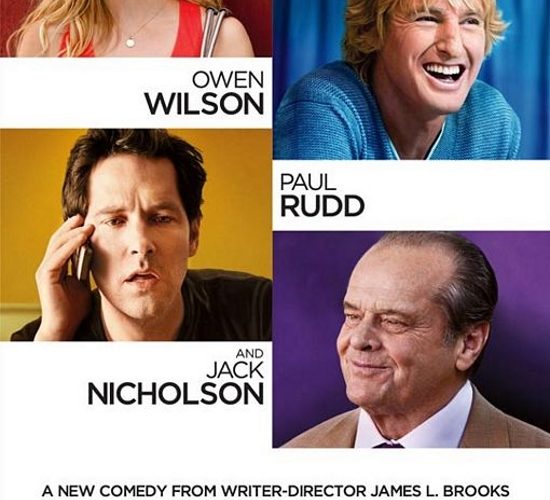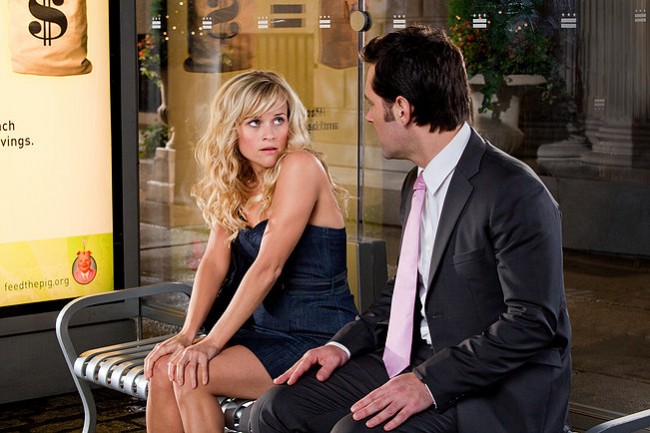Several years ago, perhaps while out of my formative years, I saw the music video for Seether’s “Fine Again,” which contains a particularly striking image: in the middle of a carnival a woman holds a sign which reads “I Will Change Your Life. ” Perhaps this is true, but love is a mathematical equation: you two may be perfect but be having a bad day, or the timing might be off, she might have started seeing someone she enjoys but it may not go anywhere but by the end maybe it’ll be too late. Stretching this haunting image into two-plus hours is How Do You Know, the new comedy from James L. Brooks.
Brooks, like comedian Albert (no relation, though he did starr in Broadcast News) has been a formidable American social critic. Not particularly cynical in his approach to film, instead his characters grow on you from a heartfelt place. His brand is a subtle, mostly intelligent form of cinematic comfort food, and on a passive level this is achieved in How Do You Know, its contemporary relevance is that it documents a character at the heart of financial regulatory reform. Meet George (Paul Rudd), who is being indicted for wire fraud. His father, who may allow him to take the fall to prove a point (he’s too trusting), is played with the snarky cool that only Jack Nicholson can pull off. It is also worth noting that Mark Lynn Baker (the legendary character actor who played Cousin Larry on ABC’s Perfect Strangers) is alive and well as the firm’s in-house council.
George is set up on a blind date with Lisa (Reese Witherspoon), an softball player who typically dates athletes. After getting cut from the team she revisits a one-night stand, pro-baseball player Matty (Owen Wilson), who she is attracted to because he shows her no compassion. There’s also a funny early scene after their one night stand where he reveals how hospitable he is.
How Do You Know has several funny moments and individual scenes that work, however the sum of the parts feels bogged down with a pace that is too flat. Perhaps it represents the system these professionals are in. All are in an identity crisis aside from Nicholson, who knows exactly who he is (which may be his downfall). There is also a touching mother-to-be, played by Kathryn Hahn as George’s loyal secretary.
The essential problem with the film is the characters outside of the universe of dating don’t have other hobbies – the courtship is based on the temporary and ultimately unbelievable and perhaps unhealthy. This is strange given the amount of dialogue in the film – Brooks edges away from farce and plays it safe.
Throughout his career he’s made better films with clearly-defined targets that appear as Trojan horses in the context of broad, character-driven comedy. These include the culture of journalism colliding with entertainment in Broadcast News, single parenthood in I’ll Do Anything, a clash of New York City cultures in As Good As It Gets and a film that hints at the currently contested Dream Act in Spanglish, not to mention his involvement with The Simpsons. If Brooks is ahead of the curve with this film and I can’t see it, then perhaps that’s a signal it’ll be a good DVD rental in a few years.
Will you see How Do You Know? Does it appeal to you?



